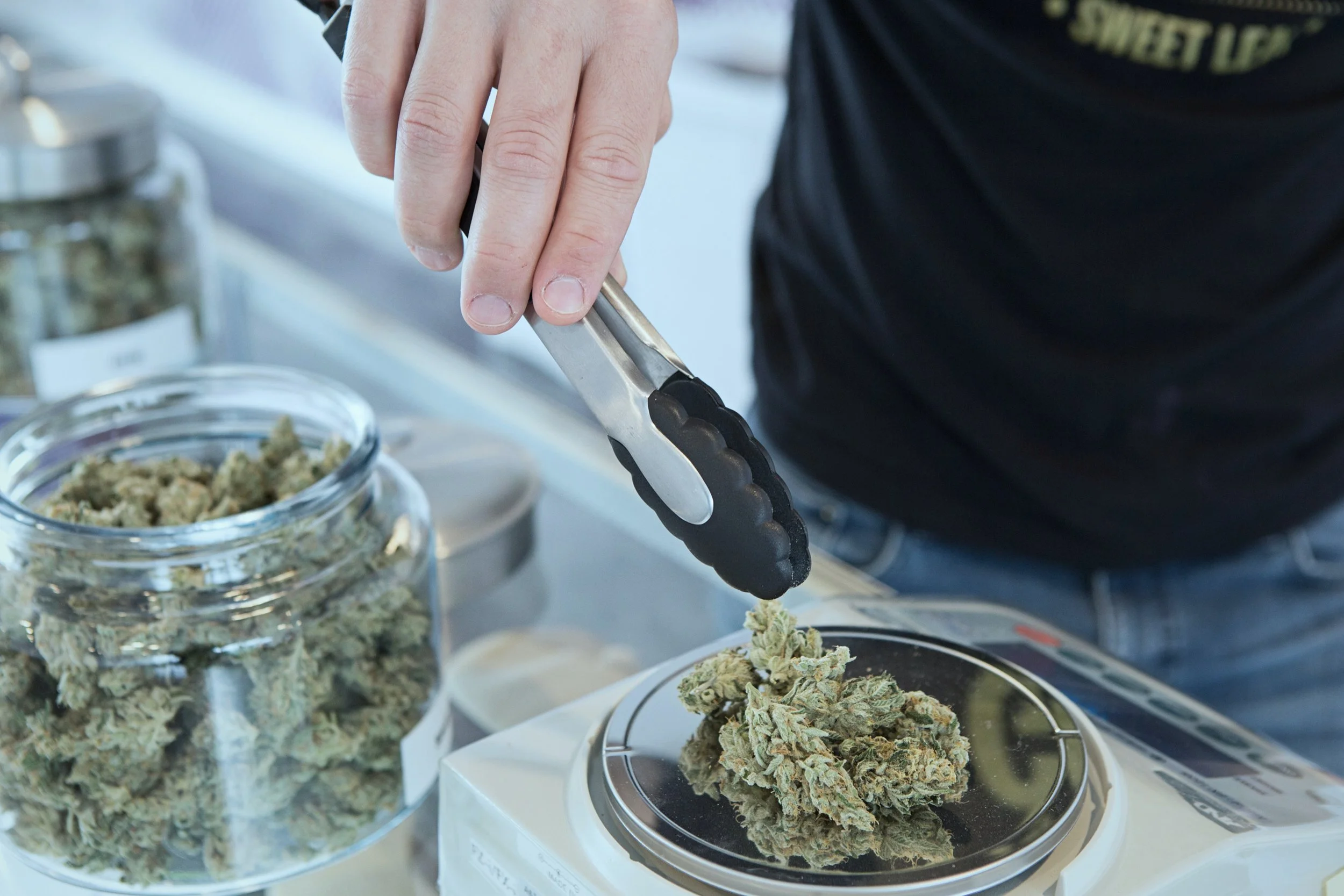OPINION: Democracy is at the heart of marijuana reform
(Photo/Budding/Unsplash)
By Aditya Shukla
What do Snoop Dogg, Jane Fonda, and Bernie Sanders have in common? They all support the legalization of marijuana, as do 70% of Americans surveyed by Gallup and Monmouth University.
This even includes a significant number of Republicans and senior citizens. Given the wide support in favor of marijuana legalization among the United States population, it is antidemocratic to reject such a policy. Moreover, legalizing marijuana has tremendous economic, social and medicinal benefits. Federal marijuana reform must therefore be a priority.
Multiple states have already fully legalized marijuana, while several others have pursued decriminalization or legalized medicinal marijuana, including red-leaning states such as Alaska, Montana, Missouri and Oklahoma. These policies have all passed through ballot measures that citizens voted on.
President Biden and Congress must act to respect the will of the people. They can do this by supporting the Marijuana Opportunity Reinvestment and Expungement (MORE) Act, which will remove marijuana from the list of scheduled substances under the Controlled Substances Act. It will also remove criminal penalties for the manufacturing, distribution or possession of marijuana. Furthermore, this policy will include a process to expunge convictions and prohibit discrimination in immigration and the provision of federal public benefits based on prior marijuana-related conduct.
This policy will lead to the US leveraging the benefits of marijuana similarly to the Netherlands, which has adopted a pragmatic approach through reform and regulation. In fact, US states that have already legalized marijuana have generated massive tax revenue which would increase further through this policy. This increased revenue can then fund social welfare public programs.
Marijuana reform would also lead to immense economic benefits. It would open investment opportunities that capitalize on the growth of the marijuana industry. Marijuana companies would be able to list their stocks on US stock exchanges, ensuring greater liquidity and opening access to a wider pool of investors.
It would also generate new production, distribution, and sales jobs at marijuana nurseries and dispensaries, and boost related jobs in marketing, data analysis, law and healthcare due to industry growth. Additionally, it would provide another source of revenue for farmers growing marijuana for adult consumption.
This policy will also stimulate the tourism industry throughout the U.S. due to the increased demand for recreational marijuana usage while travelling.
In addition, studies have revealed marijuana to have medical benefits in relieving chemotherapy-related nausea, chronic pain and multiple sclerosis-related muscle spasms. It has shown benefits for veterans experiencing PTSD. Marijuana reform will allow for easier access to the alleviation of suffering while expanding the potential for further marijuana research.
Regulating marijuana will also ensure appropriate quality standards, preventing consumers from ingesting unknown harmful substances that adversely affect them. Moreover, there will be greater transparency and accountability for the behavior of buyers and sellers.
Not only will pursuing a common-sense marijuana policy lead to immense economic, health and social benefits, but it will also lead to a reduction in crime rates. It will take money from street gangs, drug cartels and organized crime, increasing public safety and thereby phasing out illegal markets. Furthermore, there will be less expenditure on law enforcement.
This change would be positive because marijuana law enforcement has disproportionately negatively affected people of color. This policy would signify an end to the disastrous War on Drugs, specifically the criminalization of marijuana by the Nixon administration that targeted Black people and the anti-war left.
There are many debunked arguments against marijuana reform, but there is no compelling evidence that marijuana is more harmful to society than alcohol or tobacco despite their legal status. In addition, there is scant proof that legalizing marijuana encourages its usage or that it is a gateway drug, as drug consumption occurs in more unsafe contexts when illegal without regulation.
Now is a rare opportunity for meaningful progress on a key Democratic priority, with President Biden showing an openness to marijuana reform through his recent executive actions. There is precedent through the Agriculture Improvement Act of 2018, which legalized cannabidiol in the form of hemp. Republicans in Congress can further depoliticize marijuana reform by supporting the MORE Act, thus acknowledging the policy’s economic, social and medical benefits while respecting their constituents' wishes.
It is imperative to support policy overwhelmingly supported by the American people by pursuing the MORE Act. The US must live up to its cherished ideals of democracy by heeding the advice of disparate but iconic figures Snoop Dogg, Jane Fonda and Bernie Sanders, who align with most Americans on marijuana reform. Marijuana reform will facilitate safe consumption while delivering numerous economic, social and medical benefits. The time to act is now.
Aditya Shukla (MPA '24) studies Economic and Political Development, International Conflict Resolution and Data Analytics and Quantitative Analysis at SIPA. He was born in Adelaide and grew up in Mumbai and New York City. Prior to SIPA, he studied Applied Economics and Management at Cornell University and worked for three years in the financial sector.
To respond to this op-ed, or to submit your own, contact morningsidepost@columbia.edu.

